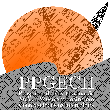Banca de QUALIFICAÇÃO: KLEBSON AWARARAWOO'I TAPIRAPE
Uma banca de QUALIFICAÇÃO de MESTRADO foi cadastrada pelo programa.DISCENTE : KLEBSON AWARARAWOO'I TAPIRAPE
DATA : 06/11/2024
HORA: 14:00
LOCAL: Via Google Meet
TÍTULO:
RITUAL SONGS: A DIALOG WITH APYÃWA SCHOOL EDUCATION
PALAVRAS-CHAVES:
Apyãwa School Education; Pedagogical Practices; Apyãwa Ritual Chants
PÁGINAS: 100
GRANDE ÁREA: Outra
ÁREA: Ensino
RESUMO:
In this work, I present the fruits of my research, carried out during my postgraduate course at the level of a professional master's degree in “Teaching in an Intercultural Indigenous Context” - PPGECII/UNEMAT. The title of my academic work is: “Ritual Chants: a dialog with Apyãwa school education”, which seeks to contribute to strengthening and maintaining the ritual chants of our people, based on pedagogical practices at school, which play a very important role in the oral modality of our language, as well as in the written modality. We chose to work on this topic because our schools have very few specific authorial didactic productions for teaching the songs of our Apyãwa people, and also as a way of enriching our teaching practices, especially in relation to our mother tongue. Therefore, this research is fundamental in the current context of our people, since the songs are the elements that are exclusively constituted by our language, or rather, they are the riches of our ancestral language.The methodology of my work is primarily composed of the knowledge of native consultants, such as elders, Apyãwa students and bibliographical research, reading Tapirapé authors, Freire, Franco, among others. As we are dealing with the teaching and strengthening of Apyãwa songs in the school context, the focus is on pedagogical action, in accordance with our school's curriculum proposal, present in our Political Pedagogical Project (PPP). The pedagogical action took place along a didactic-methodological path, during which the entire teaching-learning process focused on the ritual songs, through reading and written production. Another purpose of the work is aimed at empowering our language policy in the community to generate more sources of ancestral knowledge to improve and enrich the pedagogical practice of Apyãwa teachers in the effective training of students. For this reason, it is worth emphasizing that the production of materials on this subject is extremely important for the teaching of mother tongue in Apyãwa village schools, since the ritual songs are made up of our language. A nossa língua é viva, em pleno funcionamento, resistindo à presença da língua ocidental em nosso meio. Portanto, este trabalho é de extrema importância para nutrir a política de valorização da língua Apyãwa, por meio de cantos rituais, tanto no contexto da educação escolar Apyãwa, quanto no contexto educação Apyãwa. Por fim, também, quero destacar o produto educacional que resultou de todo esse processo didático-pedagógico, que foi a produção de um livro de cantos Axywewoja, acompanhado de material audiovisual.
MEMBROS DA BANCA:
Presidente - 75013007 - MONICA CIDELE DA CRUZ
Interna - 535.535.001-15 - EUNICE DIAS DE PAULA -
Externa à Instituição - MÔNICA VELOSO BORGES - UFG
Externa à Instituição - WALKÍRIA NEIVA PRAÇA - UnB




